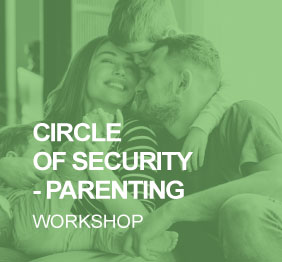WHAT IS PLAY THERAPY?
Play Therapy is a therapeutic approach that uses toys and creative arts as tools. Τhe modern non-directive approach is based on the person-centered approach of Carl Rogers, as well as theories of child development and attachment (attachment theory).
Virginia Axline, a student of Rogers, spearheaded the development of the person-centered model PLAY THERAPY, which allows children and adults to express their feelings and problems through play and creative arts.
Play therapy offers the free and safe space where the client, child or adult and therapist meet. The child, teenager or adult has the opportunity to explore at their own pace those issues from the past or present that are consciously or unconsciously impacting their lives and their ability to function in daily life. Play therapy enables the child, teenager and adult to access their own inner sources of resilience and problem solving and facilitates growth and change through the therapeutic alliance. For children especially, play is a natural means of expression, their natural language. In play therapy, in the presence of a trained adult, the child receives help and is relieved of emotional as well as behavioral problems.
During the sessions the client has the opportunity to work with all the methods/materials they wish, e.g. the sand tray and the symbols, the clay, the musical instruments, the movement, the stories, the puppets, the painting, the creative vision, etc. This opportunity for play and creativity allows the client to explore themselves on a conscious and unconscious level.
The secure environment allows the client to “play” and explore within as few boundaries as possible, but as many as necessary. These boundaries give the client the safety and protection they need and help build the relationship between them and the therapist.

People of all ages can do Play Therapy sessions to deal with a variety of issues such as loss and grief, anxiety, phobias, anger, abuse, disability, etc.
Especially for children, play therapy is the most appropriate and effective intervention.
Do you know a child who:
• is not reaching his or her full potential – academically or socially?
• has difficulty learning or performing academically?
• has nightmares or is sleep deprived?
• Is at risk of being excluded from school?
• has he been injured?
• has been emotionally, physically, or sexually abused?
• is suffering from a divorce of his parents?
• suffers from anxiety, stress or phobias?
• has suffered a loss or is grieving in some way?
• has difficulty concentrating for more than short periods of time?
• is isolated or constantly unhappy?
• is ill, has any abnormalities or shows signs of being on the autism spectrum?
• has difficulty making friends?
• is angry?
• often gets into fights with peers or siblings?
• accepts bullying?
• behaves inappropriately?
• does not play?
• suffers from urinary incontinence and encopresis?
If so, intervention through play therapy is extremely effective with all children and especially for ages 4-12, for any of the above problems. Play therapy can also be used with great success with adolescents, young adults and adults.People of all ages can do Play Therapy sessions to deal with a variety of issues such as loss and grief, anxiety, phobias, anger, abuse, disability, etc.
Especially for children, play therapy is the most appropriate and effective intervention.
Do you know a child who:
• is not reaching his or her full potential – academically or socially?
• has difficulty learning or performing academically?
• has nightmares or is sleep deprived?
• Is at risk of being excluded from school?
• has he been injured?
• has been emotionally, physically, or sexually abused?
• is suffering from a divorce of his parents?
• suffers from anxiety, stress or phobias?
• has suffered a loss or is grieving in some way?
• has difficulty concentrating for more than short periods of time?
• is isolated or constantly unhappy?
• is ill, has any abnormalities or shows signs of being on the autism spectrum?
• has difficulty making friends?
• is angry?
• often gets into fights with peers or siblings?
• accepts bullying?
• behaves inappropriately?
• does not play?
• suffers from urinary incontinence and encopresis?
If so, intervention through play therapy is extremely effective with all children and especially for ages 4-12, for any of the above problems. Play therapy can also be used with great success with adolescents, young adults and adults.
Play Therapy International (PTI) has conducted studies in a variety of contexts, including schools and primary care settings, all with parent/guardian permission. These studies have measured the changes that have occurred in children’s behavior and emotional state as a result of play therapy intervention.
In addition, PTI conducts ongoing research around the world and has an extremely large database with measurements of over 20,000 pre- and post-intervention cases that show the effectiveness of the approach when taught and applied based on the PTI standards. The percentage of children showing improvement from the intervention ranges from 77% to 84%. Research has shown that the greater the problem, the greater the rate of improvement.
From our own experience, we have seen excellent and often spectacular results with the majority of our clients in Greece. Parents, colleagues and teachers have reported seeing significant improvement in their children’s ability to concentrate and focus on their educational processes, as well as enjoy their daily lives and maintain their friendships.






